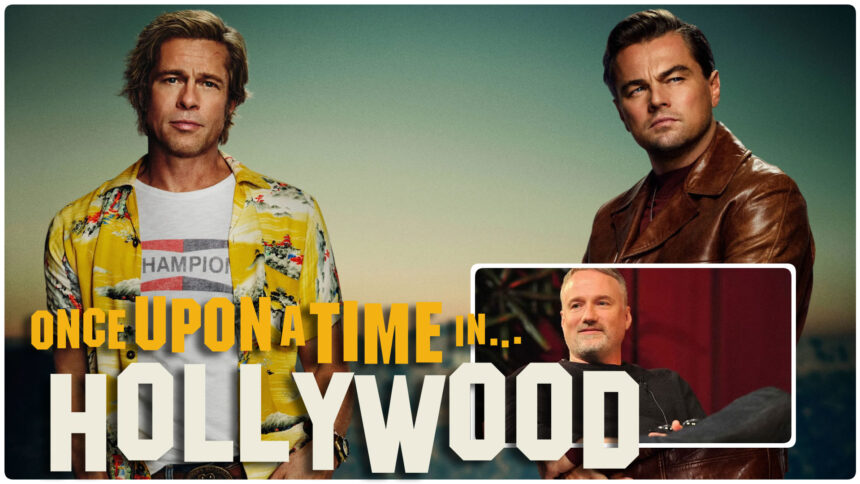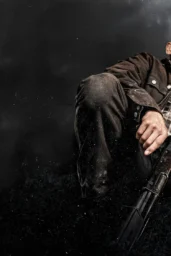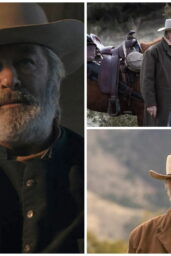Hollywood Just Broke the Rules—Again
Hollywood loves a good sequel. But when David Fincher steps in to direct a follow-up to Quentin Tarantino's Once Upon A Time in Hollywood, we're not just talking about another rehashed IP cash grab. We're talking about a seismic shift in the way prestige cinema gets made.
And yet, here we are. Deadline, Variety, and The Hollywood Reporter have all confirmed that Fincher is set to direct a sequel to Tarantino's 2019 hit, with Brad Pitt returning as Cliff Booth. Tarantino himself has given his blessing, having reworked a script originally meant to be The Movie Critic.
The kicker? This isn't a Sony Pictures production—it's a Netflix film, with a budget hovering around $200 million.
Let's break down why this is huge.
Fincher + Tarantino = The Most Unexpected Team-Up Ever
Tarantino is a maximalist. His films burst with fast-talking monologues, over-the-top violence, and that signature grindhouse aesthetic.
Fincher? A cold, clinical perfectionist. Every frame of his films is controlled within an inch of its life. His color palettes are precise. His performances are tight. His tone is dark, calculated, and methodical.
These two shouldn't mix.
And yet, somehow, it's happening.
If you think about it, the one place where their styles overlap is crime. Tarantino's scripts are drenched in pulp fiction nostalgia. Fincher's entire career (Se7en, Zodiac, Gone Girl) revolves around obsession, mystery, and psychological depth.
So what does a Fincher-directed Tarantino sequel even look like? Imagine if Fight Club had the swagger of Pulp Fiction. Or if Zodiac had the loose, nostalgic, hangout vibes of Jackie Brown.
It's a cinematic paradox—one that could redefine the way we think about modern auteur filmmaking.
Brad Pitt Is The Lynchpin Holding It All Together
Would this movie even exist without Brad Pitt? Probably not.
Reports suggest that Tarantino scrapped The Movie Critic—but Pitt refused to let the script die. Having seen Fincher's The Killer (which Pitt reportedly called “one of the best films of the decade”), he pitched the idea of Fincher taking over.
This isn't just a case of a big-name actor flexing his power. It's a passion project.
And let's not forget: Pitt and Fincher go way back.
- Se7en (1995) – Pitt's turn as Detective Mills solidified him as a serious actor.
- Fight Club (1999) – His Tyler Durden became the pop-culture icon of the late '90s.
- The Curious Case of Benjamin Button (2008) – The role that finally got Pitt his first Best Actor nomination.
The Pitt-Fincher dynamic works—but this time, it'll be layered with the DNA of a Tarantino script.
Pitt's Cliff Booth is a fascinating character: a stuntman, a drifter, maybe even a killer (did he murder his wife?). He's charming but dangerous, cool but unsettling. Under Tarantino, he was larger-than-life. Under Fincher? He could become something much darker.
Why Netflix? The Studio Wars Just Took a Wild Turn
If you're wondering why Sony isn't involved, you're not alone.
Tarantino made an unusual deal with Sony back in 2019, retaining most of the rights to Once Upon A Time in Hollywood. That decision just paid off—because now, Netflix is bankrolling the sequel with a massive $200M budget.
Think about that.
Netflix—once seen as the enemy of traditional cinema—is now funding a sequel to an Oscar-winning film that grossed $377M at the box office.
This is the opposite of what's supposed to happen. Prestige filmmakers leave streaming services to make real movies for the big screen (see: Scorsese, Nolan, Villeneuve). But here's David Fincher, a director who could work anywhere, doubling down on Netflix.
It signals a massive shift. Streaming isn't just for high-budget TV anymore (Stranger Things, The Crown). It's now the go-to home for big directors making big movies.
And if Fincher pulls this off? Expect more auteur-driven films to follow.
What About Leo & Margot? The Cameo Rumors Are Heating Up
Rumors are swirling that Leonardo DiCaprio might make a cameo as Rick Dalton, and Margot Robbie is interested in reprising her role as Sharon Tate.
How likely is this?
Well, consider this: Tarantino loves connecting his movies. Once Upon A Time in Hollywood already linked to Inglourious Basterds (remember how Rick Dalton almost starred in The 14 Fists of McCluskey?). Fincher, meanwhile, is meticulous about details. If Dalton or Tate fit into the story at all, he'll find a way to include them.
The real question: Does this version of the film still keep Tarantino's loose, meta-Hollywood storytelling? Or does Fincher strip it down to a cold, calculated crime thriller?
Will This Be Tarantino's Unofficial 10th Film?
Tarantino has one movie left before he retires. That's been his stance for years: Ten films, then he's out.
But what if this is secretly his last film?
It started as his script. He rewrote it. He handed it off to Fincher. If he stays involved as a producer (or even just the writer), does it count?
If this ends up being Tarantino's final cinematic statement—filtered through the lens of Fincher—it could be the film that caps his legacy.
Hollywood's Wildest What-If Just Became Real
A Fincher-directed Tarantino sequel with Pitt leading the charge? It sounds too wild to be true.
But it is happening.
And it could be a game-changer—not just for these filmmakers, but for Hollywood itself.
What do you think? Can Fincher pull this off, or is this destined to be the weirdest cinematic experiment in years? Let me know in the comments.












